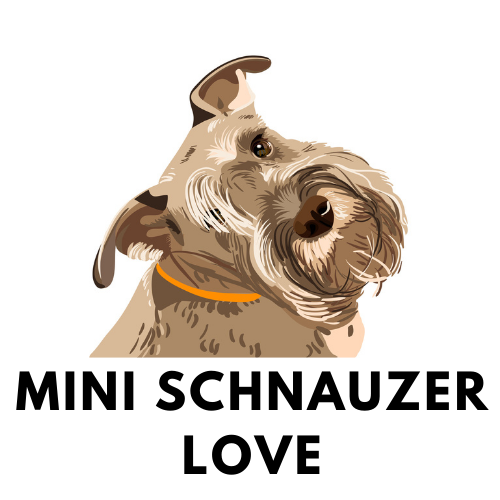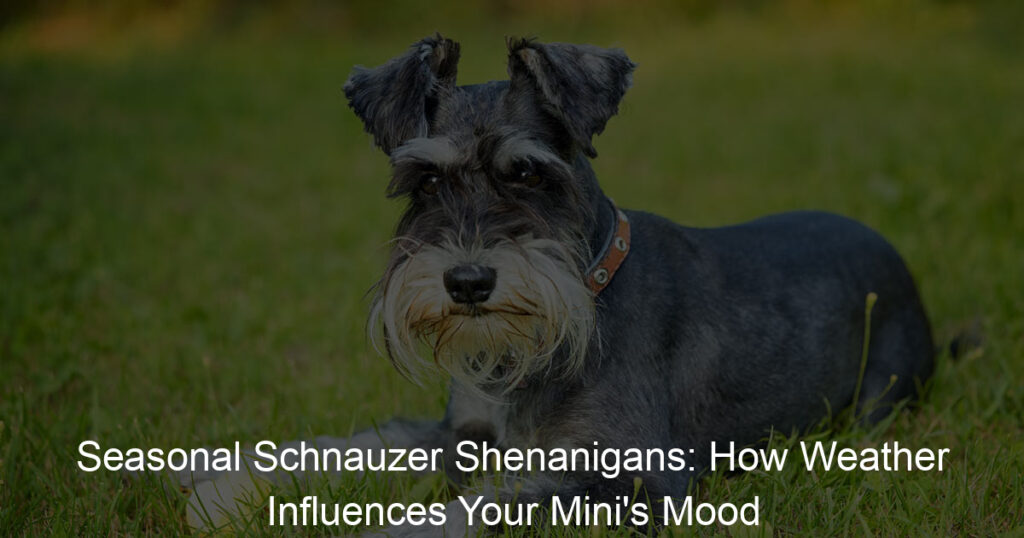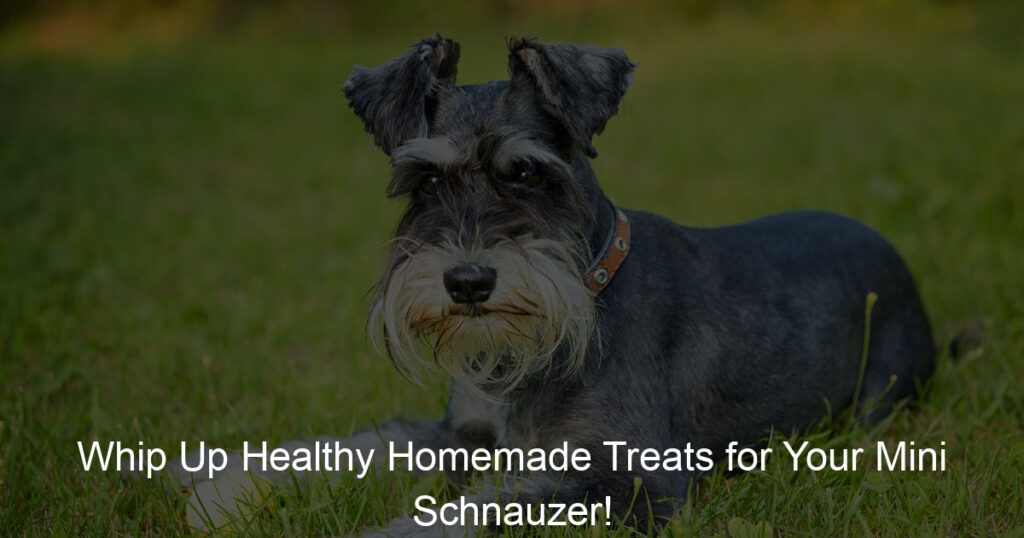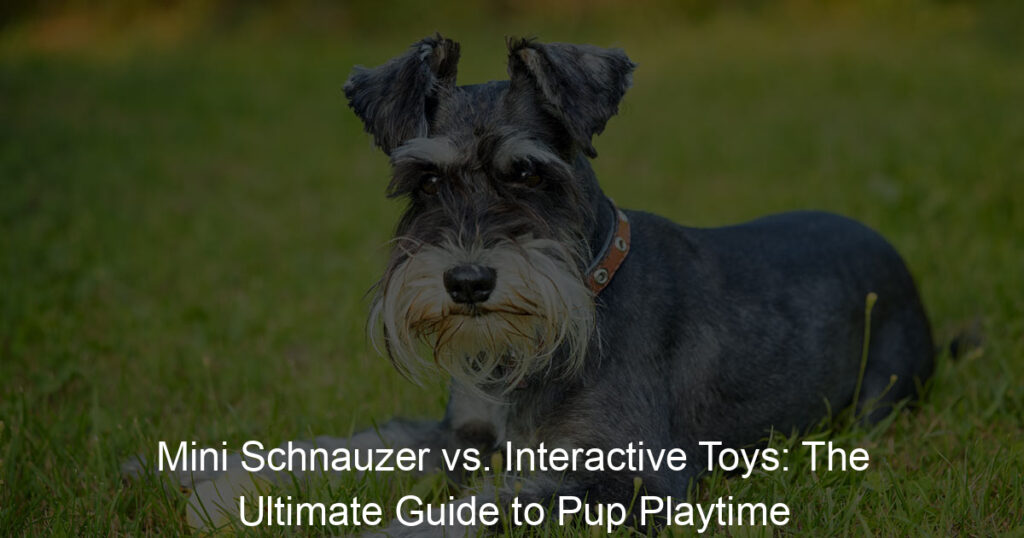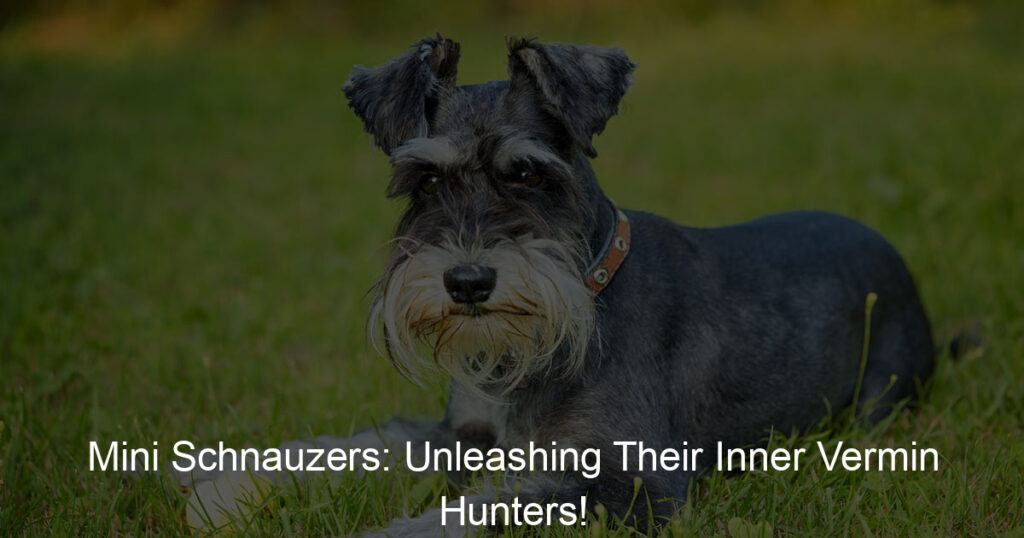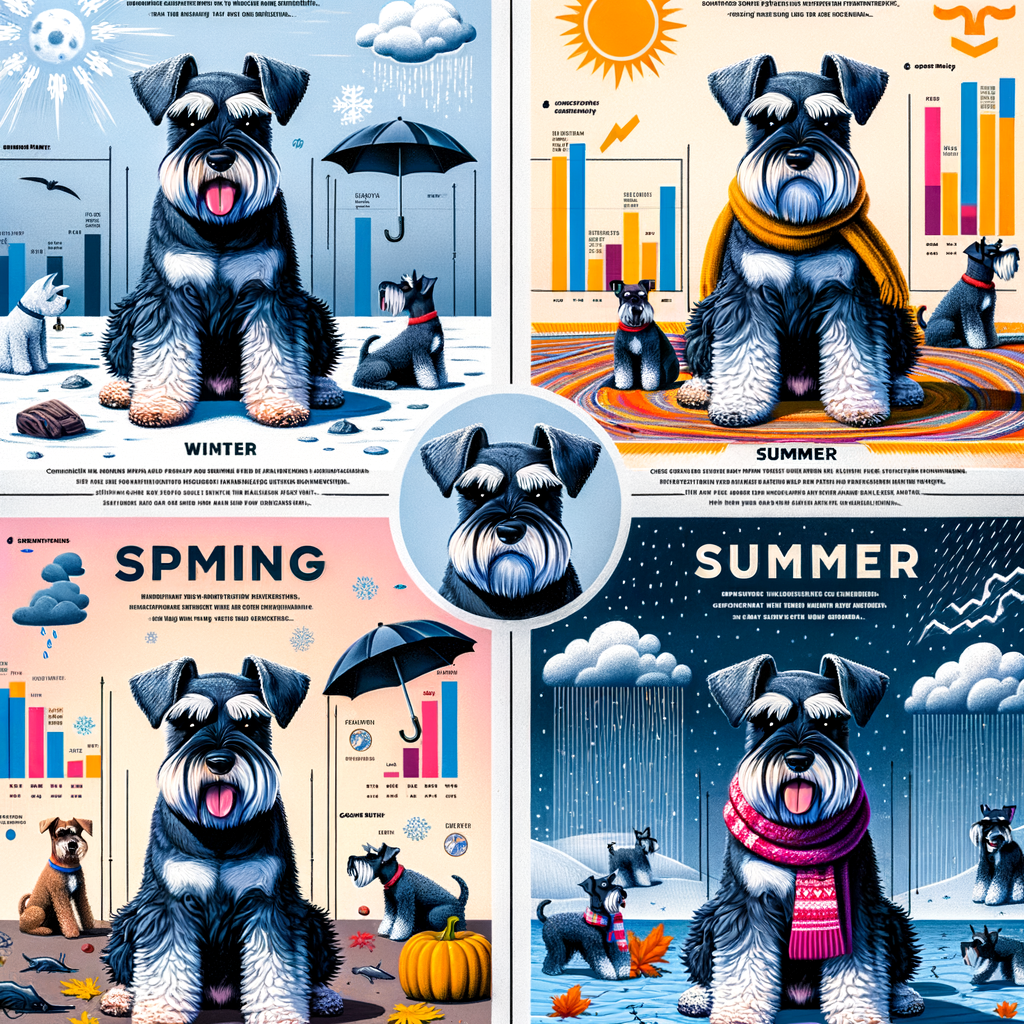
Introduction: Understanding Mini Schnauzer Behavior
Miniature Schnauzers, affectionately known as Mini Schnauzers, are a breed of small dogs that are known for their distinctive appearance and lively personality. Understanding their behavior is crucial for any Mini Schnauzer owner, as it helps in ensuring their well-being and happiness. In this blog post, we will delve into the unique behavior of Mini Schnauzers and discuss why it’s important to understand it.
- Overview of Mini Schnauzer behavior
- Importance of understanding your Mini Schnauzer’s behavior
Mini Schnauzers are known for their energetic and spirited nature. They are intelligent dogs that are quick to learn and eager to please their owners. They have a strong instinct to chase and hunt, which is a trait inherited from their terrier ancestors. Mini Schnauzers are also known for their vocal nature. They are quick to alert their owners of any perceived threats, making them excellent watchdogs. However, this can also lead to excessive barking if not properly managed.
These dogs are also very sociable and enjoy being part of family activities. They are good with children and can get along well with other pets if properly socialized. However, they can be a bit stubborn at times, which can make training a bit of a challenge. But with consistent, positive reinforcement, they can be trained effectively.
Understanding your Mini Schnauzer’s behavior is essential for several reasons. Firstly, it allows you to provide the right training and socialization for your dog. By understanding their instinct to chase and bark, for example, you can provide appropriate outlets for these behaviors and manage them effectively.
Secondly, understanding your Mini Schnauzer’s behavior can help you identify any changes that might indicate health problems. For instance, a usually energetic Mini Schnauzer becoming lethargic or a typically sociable one becoming withdrawn could be signs of illness.
Finally, understanding your Mini Schnauzer’s behavior can strengthen your bond with your pet. By recognizing their needs and responding appropriately, you can build a strong, trusting relationship with your Mini Schnauzer, ensuring a happy and fulfilling life for both of you.
Weather Impact on Dog Behavior: An Overview
Weather conditions can significantly affect a dog’s behavior. Just like humans, dogs respond to changes in the weather, which can influence their mood, energy levels, and overall behavior. This section will provide a comprehensive overview of how weather impacts dog behavior in general and delve into specific case studies of different dog breeds.
- General effects of weather on dog behavior
- Case studies of weather impact on different dog breeds
Various weather conditions can have different effects on dogs. For instance, during hot weather, dogs may become lethargic and less active to conserve energy and avoid overheating. On the other hand, cold weather can cause dogs to be more energetic as they try to keep warm. Rainy weather can make dogs feel anxious or scared, especially if it’s accompanied by thunder and lightning.
Changes in barometric pressure can also affect dogs. Some dogs can sense a storm approaching due to a drop in barometric pressure and may show signs of restlessness or anxiety. It’s also worth noting that drastic changes in weather can disrupt a dog’s routine, which can lead to behavioral changes.
Different dog breeds react to weather changes in different ways. For example, Siberian Huskies, bred in the cold climates of Siberia, are more comfortable and active in cold weather. They have a thick double coat that keeps them warm and allows them to enjoy outdoor activities even in winter. On the contrary, during hot weather, Huskies may become less active and seek cool places to rest.
On the other hand, breeds like the Chihuahua, which originated from Mexico’s hot climates, are more suited to warm weather. They have a thin coat and small body size, which makes them vulnerable to cold weather. During winter, Chihuahuas may become less active and show signs of discomfort or stress.
It’s essential to understand your dog’s breed and their weather preferences to ensure they are comfortable and their behavior is not adversely affected by weather changes.
In conclusion, weather can have a significant impact on a dog’s behavior. Understanding these effects can help dog owners better care for their pets and respond appropriately to their behavioral changes during different weather conditions. Always remember that each dog is unique, and what works for one may not work for another.
Mini Schnauzer Seasonal Behavior: A Deep Dive
Understanding the behavior of your Mini Schnauzer during different seasons is crucial for their well-being. In this section, we will focus on their behavior during spring.
Spring Behavior
Spring is a time of renewal and change, and this can affect your Mini Schnauzer in various ways. Let’s take a closer look.
- How weather affects Mini Schnauzer during spring
- Examples of Mini Schnauzer behavior in spring
As the weather warms up, your Mini Schnauzer may become more active and playful. The longer daylight hours can also affect their sleep patterns, leading to them being more awake and alert during the day. It’s important to adjust their exercise and feeding schedules accordingly.
During spring, you may notice your Mini Schnauzer sniffing the air more often, a sign they are enjoying the new scents brought by the season. They may also start shedding their winter coat, so regular grooming is essential. Additionally, they may show increased interest in outdoor activities, such as chasing butterflies or digging in the garden.
In conclusion, understanding your Mini Schnauzer’s behavior in spring can help you provide the best care for them. Remember, every dog is unique, so these behaviors may vary. Always pay close attention to your pet’s behavior and consult with a vet if you notice any drastic changes.
| Behavior | Explanation |
|---|---|
| Increased activity | Warmer weather and longer daylight hours can lead to increased energy levels. |
| Sniffing the air | New scents brought by spring can pique your Mini Schnauzer’s interest. |
| Shedding | Your Mini Schnauzer may start shedding their winter coat in preparation for the warmer months. |
| Interest in outdoor activities | The arrival of spring can lead to an increased interest in exploring the outdoors. |
Summer Behavior
As we delve deeper into the seasonal behavior of Mini Schnauzers, it’s important to understand how summer, a season known for its heat and long days, affects these small, energetic dogs.
- Weather effects on Mini Schnauzer during summer
- Examples of Mini Schnauzer behavior in summer
The summer heat can have a significant impact on a Mini Schnauzer’s behavior. Unlike humans, dogs, including Mini Schnauzers, do not sweat through their skin. They primarily cool down by panting. Therefore, during the hot summer months, you may notice your Mini Schnauzer panting more frequently. This is a normal response to the heat.
However, excessive heat can lead to heatstroke, a serious condition that can be fatal. Signs of heatstroke include excessive panting, drooling, lethargy, and in severe cases, seizures. If you notice these signs, it’s crucial to get your Mini Schnauzer to a cooler environment and contact a vet immediately.
It’s also worth noting that Mini Schnauzers, with their thick double coats, are more susceptible to overheating. Therefore, it’s essential to provide plenty of shade and fresh water during the summer months.
During the summer, you may notice some changes in your Mini Schnauzer’s behavior. For instance, they may seek out cooler places in your home, such as tiled floors or basements. They may also drink more water and be less active during the hottest parts of the day.
Some Mini Schnauzers may also show a decreased appetite during the summer. This is usually nothing to worry about, as long as your dog is still eating some food and appears healthy. If you’re concerned about your dog’s eating habits, it’s always a good idea to consult with a vet.
Despite the heat, summer can also be a fun time for Mini Schnauzers. Many enjoy playing in water, so a kiddie pool or sprinkler can provide a fun and cooling activity. Just remember to always supervise your dog around water to ensure their safety.
Understanding how the summer weather affects your Mini Schnauzer and recognizing their summer behavior can help you provide the best care for your furry friend during this season. Remember, every dog is unique, so your Mini Schnauzer may not exhibit all these behaviors. Always pay attention to your dog’s needs and consult with a vet if you have any concerns.
Fall Behavior
As we delve into the behavior of Mini Schnauzers during the fall season, it’s important to understand how the weather can influence their actions and mood. Fall brings with it a change in temperature and daylight hours, which can have a significant impact on your Mini Schnauzer.
- How weather influences Mini Schnauzer during fall
- Examples of Mini Schnauzer behavior in fall
With the arrival of fall, temperatures start to drop. This cooler weather can be a relief for Mini Schnauzers, who are known to prefer moderate temperatures. The shorter days also mean less sunlight, which can lead to a decrease in their overall activity level. They may sleep more and play less. It’s also worth noting that the fall season often brings more rain. Mini Schnauzers, like many dogs, may not enjoy going out in the rain. This can lead to changes in their walking and exercise routines.
During fall, you may notice your Mini Schnauzer becoming more cuddly and seeking warmth. This is a common behavior as the weather gets colder. They might also show less interest in outdoor activities, especially on rainy days. Instead, they may prefer to stay indoors and play with their toys. However, when the weather is dry and cool, they can be more energetic and playful outside. It’s also common for Mini Schnauzers to shed more during this season as they prepare their coat for the winter.
In conclusion, understanding your Mini Schnauzer’s behavior during the fall can help you provide the best care for them. By being aware of their needs and preferences, you can ensure they stay happy and healthy throughout the season.
| Behavior | Reason |
|---|---|
| Less active | Shorter daylight hours |
| More cuddly | Colder temperatures |
| Less interest in outdoor activities | Rainy weather |
| More shedding | Preparation for winter |
Winter Behavior
As we delve into the winter season, the behavior of Mini Schnauzers undergoes significant changes. Let’s explore how the weather impacts these adorable pets and the unique behaviors they exhibit during the cold months.
- Weather effects on Mini Schnauzer during winter
- Examples of Mini Schnauzer behavior in winter
Winter can be a challenging time for Mini Schnauzers. The cold weather affects them in several ways. They have a double coat, which provides some insulation against the cold. However, they are not built for extreme cold and can quickly become uncomfortable.
Mini Schnauzers may experience dry skin due to the cold, dry air. Their paws can also get sore from walking on ice or snow. It’s essential to monitor their comfort and health during winter and take necessary precautions, such as providing them with a warm shelter and using pet-friendly ice melts.
Mini Schnauzers’ behavior can change noticeably during winter. They may become less active and prefer to stay indoors to avoid the cold. You might notice them curling up in warm spots around the house or seeking extra cuddles for warmth.
They may also eat more during winter. This is a natural response to the cold, as their bodies burn more calories to stay warm. However, since they are less active, there’s a risk of weight gain. It’s crucial to balance their diet and ensure they get enough exercise.
Some Mini Schnauzers may show signs of discomfort or distress in extreme cold, such as shivering, reluctance to go outside, or lifting their paws off the ground when walking on snow or ice. If you notice these behaviors, it’s a sign that your pet is feeling the cold and needs extra care.
In conclusion, understanding your Mini Schnauzer’s winter behavior can help you provide the best care for them during this season. Remember, every dog is unique, and your pet may react to winter differently. Always monitor their behavior and comfort, and don’t hesitate to consult a vet if you have concerns.
Tips for Mini Schnauzer Care in Different Seasons
Spring Care
As the season changes, so does the behavior and needs of your Mini Schnauzer. Spring is a time of rejuvenation and increased activity for these small, energetic dogs. Let’s delve into understanding their behavior during this season and key takeaways for their care.
- Understanding Mini Schnauzer behavior in spring
- Key takeaways for spring care
- Increased Exercise: Make the most of the longer days and warmer weather by increasing your Mini Schnauzer’s exercise routine. This will help burn off their extra energy and keep them healthy.
- Grooming: Regular grooming is essential during spring to manage shedding and keep your Mini Schnauzer’s coat healthy. Consider a professional grooming session at the start of the season to remove the winter coat.
- Training: With the increased distractions of spring, it’s a good time to reinforce training, especially recall and leash manners, to ensure your Mini Schnauzer stays safe during outdoor activities.
- Health Check: Spring is a good time to schedule a health check with your vet to ensure your Mini Schnauzer is in good health and up-to-date with vaccinations and parasite control.
Spring is a time when your Mini Schnauzer may exhibit increased energy levels. The warmer weather and longer daylight hours provide more opportunities for outdoor activities. They may become more playful and eager to explore the outdoors. It’s also the time when they shed their winter coat, so you may notice more hair around your home.
Spring also brings a host of new smells and sounds, which can make your Mini Schnauzer more curious and possibly more distracted during walks or playtime. They may also show a heightened interest in birds and other small animals, as spring is a time of increased wildlife activity.
Given the changes in your Mini Schnauzer’s behavior and needs in spring, here are some key tips for their care:
In conclusion, understanding your Mini Schnauzer’s behavior and needs in spring can help you provide the best care for them during this season. Remember, every dog is unique, so it’s important to observe your own Mini Schnauzer and adjust their care as needed.
Summer Care
When the summer season rolls in, there are certain changes you may notice in your Mini Schnauzer’s behavior. Understanding these changes and knowing how to respond can help ensure your furry friend stays happy and healthy throughout the hot months.
- Understanding Mini Schnauzer behavior in summer
Mini Schnauzers, like many other breeds, can be sensitive to temperature changes. In the summer, they may become more lethargic due to the heat. They might also drink more water and seek cool places to rest. It’s not uncommon for Mini Schnauzers to shed more during this season, as they try to stay cool.
It’s also important to note that Mini Schnauzers can be more prone to heatstroke due to their thick double coat. Therefore, it’s crucial to monitor their outdoor activity and ensure they have plenty of shade and water.
- Key takeaways for summer care
Here are some key points to remember for taking care of your Mini Schnauzer during summer:
- Hydration: Always ensure your Mini Schnauzer has access to fresh, clean water. This is especially important during hot summer days.
- Shade: If your Mini Schnauzer spends time outside, make sure there’s plenty of shade available. A shaded area can provide a cool place for your dog to rest and escape the heat.
- Exercise: Try to exercise your Mini Schnauzer during the cooler parts of the day, such as early morning or late evening. Avoid strenuous activity during the peak heat hours.
- Grooming: Regular grooming can help manage shedding and keep your Mini Schnauzer comfortable. However, avoid shaving your dog’s coat, as it provides protection from the sun.
Remember, every dog is unique and may react differently to the summer heat. Always monitor your Mini Schnauzer’s behavior and consult with your vet if you notice any concerning changes.
Fall Care
As the leaves begin to change and the air turns crisp, your Mini Schnauzer’s behavior may also undergo a transformation. It’s important to understand these changes and adapt your care routine accordingly.
- Understanding Mini Schnauzer behavior in fall
During the fall, Mini Schnauzers often become more active. The cooler weather is more comfortable for them, leading to increased energy levels. They may also show a heightened interest in exploring outdoors, thanks to the new scents and sights that come with the changing season.
However, the fall season also brings shorter daylight hours, which can affect your dog’s mood and behavior. Some Mini Schnauzers may show signs of lethargy or depression as the days get shorter. It’s important to monitor these changes and provide extra comfort and stimulation as needed.
- Key takeaways for fall care
With the increased activity and potential mood changes in fall, it’s crucial to adjust your Mini Schnauzer’s care routine. Here are some key takeaways:
- Exercise: Take advantage of your Mini Schnauzer’s increased energy by providing more exercise opportunities. This can include longer walks, more playtime, or even agility training.
- Comfort: As the days get shorter, provide extra comfort for your Mini Schnauzer. This can include more cuddle time, a warm bed, or even a light therapy lamp designed for pets.
- Diet: With increased activity, your Mini Schnauzer may require more food. Monitor their weight and adjust their diet as needed.
- Health: Fall is also a good time to schedule a vet check-up. This can help catch any potential health issues early.
By understanding your Mini Schnauzer’s behavior in fall and adapting your care routine, you can ensure they stay happy and healthy throughout the season.
Winter Care
As the temperature drops, Mini Schnauzers, like other breeds, exhibit certain changes in their behavior. Understanding these changes is crucial to providing the best care for your pet during the winter months.
- Understanding Mini Schnauzer Behavior in Winter
During winter, Mini Schnauzers tend to be less active. Their metabolism slows down to conserve energy, and they may sleep more than usual. This is a natural response to the cold weather and shorter daylight hours. They also tend to eat more during this time, as their bodies need more energy to stay warm. However, it’s important to monitor their food intake to prevent weight gain.
Mini Schnauzers are not particularly fond of cold weather. They have a double coat, but it’s not enough to keep them warm in extremely cold temperatures. Therefore, they may resist going outside for walks or playtime. If they do go out, they may shiver or lift their paws off the ground to avoid the cold.
- Key Takeaways for Winter Care
Here are some key points to remember when caring for your Mini Schnauzer during winter:
| Winter Care Tips | Description |
|---|---|
| Keep them warm | Provide a warm and cozy space for your Mini Schnauzer indoors. Consider getting a doggy sweater or coat for outdoor activities. |
| Monitor food intake | While they may eat more during winter, it’s important to prevent overeating and weight gain. Stick to a balanced diet and regular feeding schedule. |
| Exercise indoors | If it’s too cold outside, find ways to keep your Mini Schnauzer active indoors. Play games or use interactive toys to keep them engaged and active. |
| Protect their paws | Use dog boots or paw balm to protect your Mini Schnauzer’s paws from the cold and salt on the roads. |
Remember, every dog is unique. What works for one Mini Schnauzer may not work for another. Always observe your pet’s behavior and adjust your care routine as necessary. When in doubt, consult with a veterinarian.
Conclusion: Seasonal Care for Mini Schnauzer
As we conclude, it’s important to remember that Mini Schnauzers, like all dogs, are affected by the changing seasons. Their behavior and needs can vary depending on the time of year, and as responsible pet owners, it’s our job to understand and cater to these changes.
- Summary of Mini Schnauzer behavior in different seasons
In the spring, Mini Schnauzers are often more active and playful, enjoying the warmer weather and longer days. They may shed their winter coat during this time, so regular grooming is essential.
During the summer, they can become overheated easily due to their thick coat. It’s important to provide plenty of water, shade, and indoor time during the hottest parts of the day.
In the fall, they may become more sedentary as the days get shorter. This is a good time to check for any skin issues or parasites that may have cropped up during the summer months.
And in the winter, they may need extra warmth due to their small size and lack of a thick undercoat. Be sure to provide a warm bed and limit time outside in extremely cold temperatures.
- Importance of seasonal care for Mini Schnauzer
Seasonal care for your Mini Schnauzer is not just about keeping them comfortable – it’s about keeping them healthy and happy. By understanding their seasonal behavior and needs, you can prevent health issues, reduce stress, and enhance their quality of life.
For example, by providing extra warmth in the winter, you can prevent hypothermia and frostbite. By ensuring they stay cool and hydrated in the summer, you can prevent heatstroke. And by keeping up with grooming in the spring, you can prevent skin issues and matting.
In conclusion, owning a Mini Schnauzer is a year-round commitment that changes with the seasons. But with a little knowledge and preparation, you can ensure your furry friend stays happy and healthy all year long.
